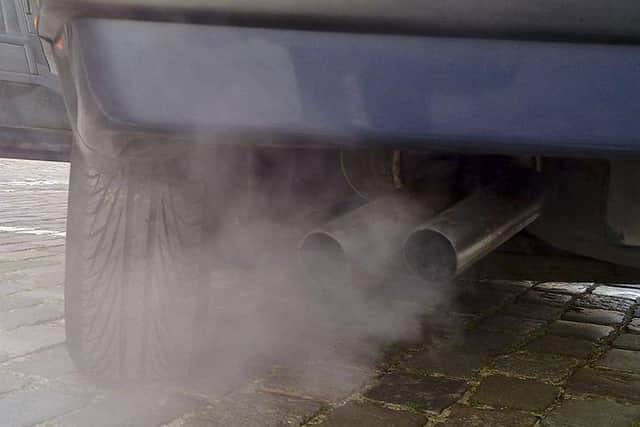"Fewer cars could actually be a glimpse of paradise"


Climate change denier, conspiracy theorist and religious fundamentalist Neville Martin has, at last, made a sensible point.
It is crazy to expect that we can replace all our petrol and diesel cars with electric vehicles.
Advertisement
Hide AdAdvertisement
Hide AdFor a start there just isn’t enough cobalt, lithium and nickel to build all the new batteries.
The mining of these materials has severe environmental costs and often involves child labour.
Mining companies are considering mining the seabed to extract the required lithium, with huge consequences for sea-life.
Manufacturing all these electric cars will have a huge carbon footprint, one we cannot afford if we are to get to carbon zero in time to save us from climate catastrophe.
Advertisement
Hide AdAdvertisement
Hide AdMr Martin is also right that the grid will struggle to supply the required electricity for all the electric cars, especially as we need to start decommissioning nuclear power stations, because they are on the coast and are threatened by the rising sea levels.
However, Mr Martin lacks any vision as to how we can actually reduce the number of cars while improving the quality of life for everyone.
We need to discourage private vehicles and boost public transport.
Nottingham has made a great start on this.
Employers with more than 11 car park spaces pay a levy to the council per parking space.
Advertisement
Hide AdAdvertisement
Hide AdMoney raised from this has improved the city’s tram and bus services and been invested in the city centre railway station and in cycle routes.
The net effect is less congestion and much improved public transport, so more people choose to leave their car at home.
It means less air pollution and fewer cars parked on crowded streets.
People will get more exercise and there will be fewer car accidents, saving the NHS money.
Advertisement
Hide AdAdvertisement
Hide AdDiscouraging commuters from parking in inner-city neighbourhoods by charging or restricting them will have similar effects, bringing relief to residents who currently battle to get a car park space anywhere near their home.
Carpools of electric cars would be available when public transport really can’t do the job.
However, if public transport was top quality and cheap, as Sheffield buses used to be, then most people would opt to use it.
People don’t enjoy being stuck in traffic jams, they would much rather be able to travel on a tram so they can look at their phone on the journey!
Advertisement
Hide AdAdvertisement
Hide AdMr Martin is also correct to be concerned about future electricity supplies.
We need massive investment in renewables, including air and ground source heat pumps to replace domestic gas boilers, as well as solar, wind and hydro.
Soon it will be common for windows to contain transparent solar cells that will power buildings.
However, there is still a danger of energy shortage, especially as the Government are not taking the necessary actions to promote new renewable energy.
Advertisement
Hide AdAdvertisement
Hide AdTherefore we need to find a way to ration what energy we use, so those with little income can still heat their homes and those that are rich have to keep an eye on their consumption, as money will not be able to buy them all the energy they want.
Massive investment in insulation, such as cladding the outside of terraced housing, is also required.
Now video conferencing is simple, far more people should be able to work at home or at least have much more flexible hours, reducing rush-hour congestion.
Cars need to be banned around schools at start and pick-up time.
Advertisement
Hide AdAdvertisement
Hide Ad‘Walking buses’ should be a common feature of every primary school, reducing the obesity epidemic among the young and helping busy parents who are hurrying to get to and from work.
Fewer cars need not be Mr Martin’s hell on Earth, it could actually be a glimpse of paradise.
Comment Guidelines
National World encourages reader discussion on our stories. User feedback, insights and back-and-forth exchanges add a rich layer of context to reporting. Please review our Community Guidelines before commenting.